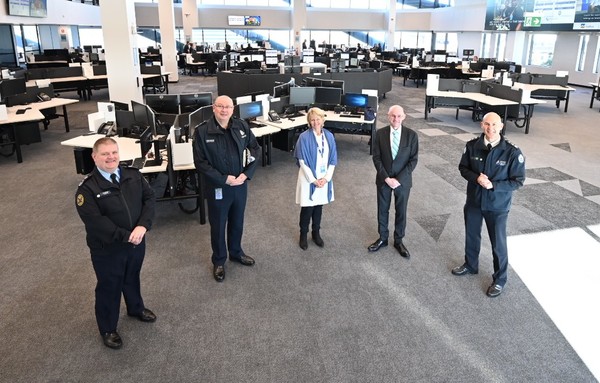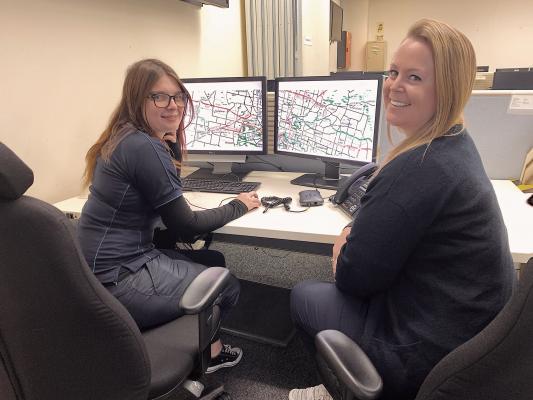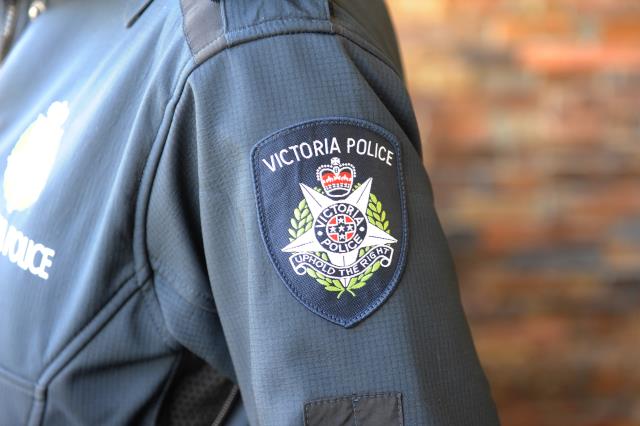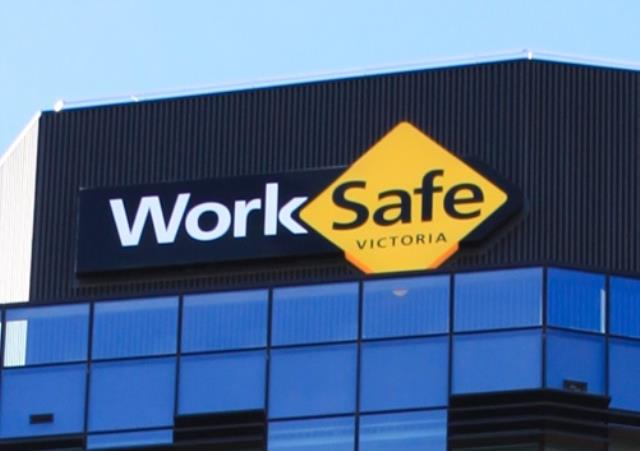People who call triple-0 to request police help are routinely heaping abuse, threats and inappropriate sexual remarks on employees of the Emergency Services Telecommunications Authority (ESTA).
About 70 per cent of calls seeking police assistance involve the operators being abused, according to the ’I am 000’ podcast.
Two call-takers who work at the ESTA centre in Williams Landing, Erin and Kate, were recently interviewed for the podcast, discussing the abuse they receive on a daily basis.
Snippets of offensive and foul-mouthed calls to triple-0 are included in the podcast, and are sometimes harrowing listening.
Podcast host Tania Willett said she hoped this particular episode of the ’I am 000’ series would raise awareness of the abuse ESTA police call-takers receive.
“It is difficult to hear that police call-takers, who are there to help in an emergency, are being sworn at and verbally abused by callers,” Ms Willett said.
“Hearing those triple-0 calls can be quite confronting but it does show the reality of what these calls can be like.”
The executive manager operations at Williams Landing, Amy Kimber, has worked at ESTA for more than 13 years. She began as a police call-taker herself.
Mrs Kimber said that when people called triple-0 they were often experiencing a traumatic situation, and abuse could come about because they were scared, angry or panicked.
But she said the abuse ESTA call-takers received did not always come from callers in risky or emotional situations, and that harassment was “quite common across all calls”.
“Threats to call-takers themselves are quite common,” she said.
“Often call-takers might get asked if they have children and a family and the caller might make threats towards them.
“We can also get calls from people making sexually inappropriate comments, which can be quite traumatic for our call-takers.”
Mrs Kimber said that ESTA call-takers were provided with customer service and call control training, which she said was important for all employees, both new and experienced.
“We do have support services available and we reinforce that if call-takers need, they can use our peer support program and our employee assistance program, which provides access to clinical counsellors,” she said.
“We encourage call-takers to take a deep breath, take a few minutes to compose themselves after a challenging call, and when they’re ready to face another call, then they can do so.”
Mrs Kimber said that for new ESTA call-takers, often their first six to 12 months in the job established whether it was the type of work for them or not.
“Call-takers get into the role because they want to help the community and work for a purpose,” she said.
“In the first few months they will establish whether they can cope with the role, which does include the constant verbal abuse from callers.”
Mrs Kimber said she believed the general public would be surprised to learn of the amount of harassment ESTA call-takers received.
“People wouldn’t normally treat others so poorly face-to-face, so our call-takers can be seen as easy targets being only a voice on the phone,” Mrs Kimber said.
“Our call-takers are actual people behind the phone, they are not just a voice.
“They all have families and friends, just as all of our callers do, and the abuse doesn’t help the situation at all.”
Mrs Kimber said that ESTA received more than 7000 calls per day.
“The call-taking process is designed to be streamlined so our call-takers can quickly work through the questions in order to get the right help to the caller, as quickly as possible.”
The “I am 000” podcast series is a mix of ambulance, police and fire-related stories highlighting the brave actions of callers in challenging situations, as well as ESTA operators.
The podcast is available on Apple Podcasts, Spotify and SoundCloud, or subscribe at esta.vic.gov.au/i-am-000-podcast.









